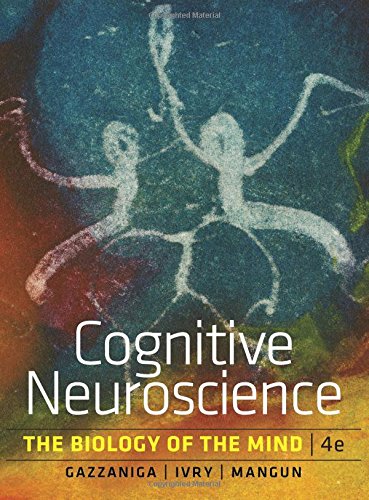Cognitive Neuroscience: The Biology of the Mind pdf
Par lopez terry le vendredi, juin 24 2016, 03:02 - Lien permanent
Cognitive Neuroscience: The Biology of the Mind by G. R. Mangun, Michael S. Gazzaniga, Richard B. Ivry


Cognitive Neuroscience: The Biology of the Mind G. R. Mangun, Michael S. Gazzaniga, Richard B. Ivry ebook
Page: 185
Publisher: W. W. Norton & Company
ISBN: 0393972194, 9780393972191
Format: pdf
Brain & Cognition, 43, 112- 117. Wilson, a coming together of workers in A.I. Here are some of the reasons: 1. We have an inkling of the cognitive processes that beget consciousness, which is both a product and central feature of the brain; but philosophers and neuroscientists alike still have trouble defining, much less locating, the phenomenon and explaining the . Ramachandran is Director of the Center for Brain and Cognition with the Psychology Department and Neurosciences Program at the University of California, San Diego, and Adjunct Professor of Biology at the Salk Institute. To borrow a word from the Harvard biologist E. Apparently so, and Provan indicates his stance on the matter by suggesting one of the central tenents of, yes, the quest of modern neuroscience—that cognition does have a biological basis—is akin to a fantasy. Gazzaniga, M.S., Ivry, R.B., & Mangun, G.R. She looked at some discredited neuroscience papers that had overrelied on spurious correlations and functional magnetic resonance imaging — fMRI, the neuroscientist's favourite brain imaging technique — to draw questionable conclusions. Examining the correlation between humans and other primates, the School of Integrated Science and Humanity (SISH) will launch its Cognitive Neuroscience lecture series Nov. Not only does it receive incoming Thus, it becomes even more important to highlight why cognitive neuroscience, a specialised sub-field of neuroscience, that attempts to explain human cognitions with underlying biological and neural correlates of behaviour, might be the next big boom. Cognitive Neuroscience: The biology of the mind (2nd ed.). Approach to understanding and treating disorders such as autism, stroke and Alzheimer's disease, developing technologies to aid people with disabilities, and addressing broader issues related to the mind and brain,” said Suzanna Rose, executive director and associate dean of SISH. At the beginning of the book, Kurzweil promises to reverse engineer the human brain, but what he's really done is the opposite: reverse engineer his own companies' computer systems in order to propose a theory about how the mind works. This week, my esteemed colleagues will try to convince you that chemistry is the most nightmarish discipline to cover as a science journalist, or maybe archaeology or biology or physics. Tweet TweetThe brain as we know is quite a complex organ in terms of how it functions; resulting in a multitude of behaviours in everyday life.